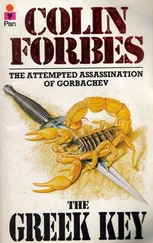Colleen McCullough - 2. The Grass Crown
Здесь есть возможность читать онлайн «Colleen McCullough - 2. The Grass Crown» весь текст электронной книги совершенно бесплатно (целиком полную версию без сокращений). В некоторых случаях можно слушать аудио, скачать через торрент в формате fb2 и присутствует краткое содержание. Жанр: Современная проза. Описание произведения, (предисловие) а так же отзывы посетителей доступны на портале библиотеки ЛибКат.
- Название:2. The Grass Crown
- Автор:
- Жанр:
- Год:неизвестен
- ISBN:нет данных
- Рейтинг книги:5 / 5. Голосов: 1
-
Избранное:Добавить в избранное
- Отзывы:
-
Ваша оценка:
- 100
- 1
- 2
- 3
- 4
- 5
2. The Grass Crown: краткое содержание, описание и аннотация
Предлагаем к чтению аннотацию, описание, краткое содержание или предисловие (зависит от того, что написал сам автор книги «2. The Grass Crown»). Если вы не нашли необходимую информацию о книге — напишите в комментариях, мы постараемся отыскать её.
2. The Grass Crown — читать онлайн бесплатно полную книгу (весь текст) целиком
Ниже представлен текст книги, разбитый по страницам. Система сохранения места последней прочитанной страницы, позволяет с удобством читать онлайн бесплатно книгу «2. The Grass Crown», без необходимости каждый раз заново искать на чём Вы остановились. Поставьте закладку, и сможете в любой момент перейти на страницу, на которой закончили чтение.
Интервал:
Закладка:
The quaestiones provided for by the lex Licinia Mucia were set up in Rome, Spoletium, Cosa, Firmum Picenum, Aesernia, Alba Fucentia, Capua, Rhegium, Luceria, Paestum, and Brundisium, with provision that as soon as those parts of each region had been scoured, the respective court would move to a fresh location. Only Latium ended in not having a court; the lands of the Marsi were felt to be more important, so to Alba Fucentia was the tenth place given. But on the whole, the Italian leaders who met at Grumentum seven days after Drusus visited Silo and Mutilus at Bovianum had succeeded in removing their spurious citizens from all those Roman and Latin colony towns. Of course there were some who refused to believe they would suffer, as well as some who perhaps did believe but were just too well entrenched to consider fleeing. And upon these men the full wrath of the quaestiones fell. As well as its consular president and two other senators as judges, each court had a staff of clerks, twelve lictors (the president had been empowered with a proconsular imperium) and an armed mounted escort of a hundred militiamen culled from the ranks of retired cavalry troopers and those ex-gladiators who could ride well enough to turn a horse at the gallop. The judges had been chosen by lots. Neither Gaius Marius nor Publius Rutilius Rufus drew a lot, no surprise most likely their wooden marbles hadn't even been put inside the closed jar of water so how, when the jar was spun like a top, could their marbles possibly have popped out of the little side spout? Quintus Lutatius Catulus Caesar drew Aesernia, and Gnaeus Domitius Ahenobarbus Pontifex Maximus drew Alba Fucentia; Scaurus Princeps Senatus wasn't chosen but Gnaeus Cornelius Scipio Nasica was, drawing Brundisium, a location which didn't please him in the least. Metellus Pius the Piglet and Quintus Servilius Caepio were among the junior judges, as was Drusus's brother-in-law, Marcus Porcius Cato Salonianus. Drusus himself didn't draw a lot, a result pleasing him profoundly, as he would have had to announce to the Senate that his conscience would not permit of his serving. "Someone blundered," said Marius to him afterward. "If they had the sense they were presumably born with, they would have ensured that you draw a lot, thus forcing you to declare your feelings very publicly. Not good for you in this present climate!" "Then I'm glad they don't have the sense they were presumably born with," said Drusus thankfully. Marcus Antonius Orator the censor had drawn the lot for the presidency of the quaestio inside the city of Rome. This delighted him, as he knew his transgressors would be more difficult to find than the mass registrants of the country, and he enjoyed conundrums. Also, he could look forward to earning millions of sesterces in fines thanks to the efforts of informers, already milling eagerly with long lists of names. The catch varied considerably from place to place. Aesernia failed to please Catulus Caesar one little bit; the town was situated in the middle of Samnium, Mutilus had succeeded in persuading all but a handful of the guilty to leave, and the Roman citizen and Latin residents had no information to offer nor could the Samnites be subverted into betraying their own for any amount of money. However, those who remained were summarily dealt with in an exemplary manner (at least according to Catulus Caesar's lights), the President of the court having found a particularly brutal fellow among his escort to perform the floggings. The days were boring nonetheless, the procedure calling for the reading out of every citizen name new to the rolls; it took time to discover that each name when read off was no longer resident within Aesernia. Perhaps once every three or four days a name would produce a man, and these encounters Catulus Caesar looked forward to eagerly. Never lacking in courage, he ignored the rumbles of outrage, the boos and hisses with which he was greeted wherever he went, the furtive little sabotages which plagued not only him but his two more junior judges, the clerks and lictors, even the troopers of his escort. Girths snapped on saddles and riders went crashing to the ground, water had a habit of becoming mysteriously fouled, every insect and spider in Italy had seemingly been rounded up and put in their quarters, snakes slid out of chests and cupboards and bedclothes, little togate dolls all smeared with blood and feathers were found everywhere, as were dead cockerels and cats, and episodes of food poisoning became so rife the President of the court was obliged in the end to force-feed slaves some hours before every meal as well as putting guards to watch the food constantly. Oddly enough, Gnaeus Domitius Ahenobarbus Pontifex Maximus in Alba Fucentia proved a heartening President; like Aesernia, most of the guilty were long gone, so it took the court six days of sessions to unearth its first victim. No one informed, but the man was well off enough to afford to pay his fine, and stood with head held high while Ahenobarbus Pontifex Maximus ordered the immediate confiscation of all his property within Alba Fucentia. The trooper deputed to administer the lash enjoyed his task too much; white-faced, the President of the court ordered the flogging stopped when blood began to spatter everyone within ten paces of the hapless victim. When the next culprit came to light, a different man plied the knout so delicately that the guilty back showed scarcely a laceration. Ahenobarbus Pontifex Maximus also found in himself an unsuspected distaste for informers, of whom there were not many, but who were perhaps in consequence particularly loathsome. There was nothing he could do save pay the reward, but he then would turn around and subject an informer to such a lengthy and unpleasant inquisition about his own citizen status that informers ceased to present themselves. On one occasion when the accused false citizen was revealed to have three deformed and retarded children, Ahenobarbus secretly paid the fine himself and firmly refused to allow the man to be ejected from the town, in which his poor children fared better than they would have in the country. So whereas the Samnites spat contemptuously at the mere mention of Catulus Caesar, Ahenobarbus Pontifex Maximus grew to be quite well liked in Alba Fucentia, and the Marsi were treated more gently than the Samnites. As for the rest of the courts, some presidents were ruthless, some steered a middle course, and some emulated Ahenobarbus. But the hatred grew, and the victims of this persecution were enough in number to steel the Italian nationals in their determination to be rid of the Roman yoke if they died trying. Not one of the courts found itself with the backbone to send its militiamen into the rural fastnesses in search of those who had fled the towns. The only judge who got himself into legal trouble was Quintus Servilius Caepio, who had been seconded to the court at Brundisium, under the presidency of Gnaeus Scipio Nasica. That sweltering and dusty seaport pleased Gnaeus Scipio Nasica so little after he actually arrived there that a minor illness (later discovered to be haemorrhoids, much to the mirth of the local people) caused him to scurry back to Rome for treatment. His quaestio he left under the aegis of Caepio as President, assisted by none other than Metellus Pius the Piglet. As in most places, the guilty had fled before the court went into session, and informers were scarce. The list of names was read out, the men could not be found, and the days went by fruitlessly until an informer produced what seemed like ironclad evidence against one of Brundisium's most respected Roman citizens. He was not of course a part of the concerted mass enrollment, the informer testifying that his illegal usurpation of the citizenship went back over twenty years. As industrious as a dog unearthing rotting meat, Caepio went about making an example of this man, even to the extent that he ordered his questioning under torture. When Metellus Pius grew afraid and protested, Caepio refused to listen, so sure was he that this ostensible pillar of the community was guilty. But then evidence was brought forward proving beyond any shadow of a doubt that the man was what he purported to be a Roman citizen in high standing. And the moment he was vindicated, he sued Caepio. It took a hasty trip to Rome and an inspired speech by Crassus Orator to secure Caepio's acquittal, but clearly he could not return to Brundisium. A snarling Gnaeus Scipio Nasica was obliged to go in his stead, mouthing imprecations against all Servilii Caepiones. As for Crassus Orator., obliged to undertake the defense of a man he disliked heartily, the fact that he won the case was scant comfort. "There are times, Quintus Mucius," he told his cousin and boon companion Scaevola, "that I wish anyone but us had been consuls in this hideous year!"
Читать дальшеИнтервал:
Закладка:
Похожие книги на «2. The Grass Crown»
Представляем Вашему вниманию похожие книги на «2. The Grass Crown» списком для выбора. Мы отобрали схожую по названию и смыслу литературу в надежде предоставить читателям больше вариантов отыскать новые, интересные, ещё непрочитанные произведения.
Обсуждение, отзывы о книге «2. The Grass Crown» и просто собственные мнения читателей. Оставьте ваши комментарии, напишите, что Вы думаете о произведении, его смысле или главных героях. Укажите что конкретно понравилось, а что нет, и почему Вы так считаете.












